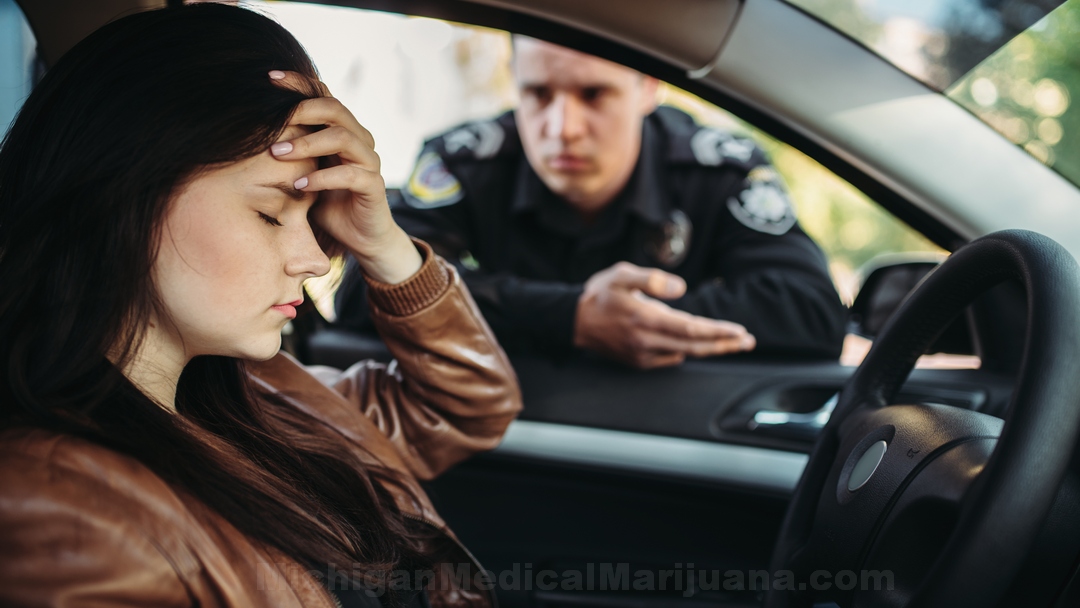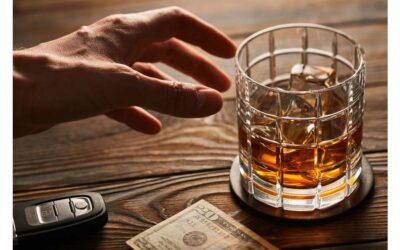In December lawmakers agreed to fund an expansion of the program based on its success.
A fatal crash in the Upper Peninsula city of Gladstone in 2013 was the catalyst behind the drug testing pilot. A semi-truck driver was convicted on six-felony charges in connection with the crash, including two counts of operating a motor vehicle with the presence of a controlled substance causing death.
According to MSP the number of drug-impaired fatal crashes has increased over the ten year period between 2007 and 2017 by 151%, up from 98 to 246.
When his parents were killed in 2016, the couple’s son contacted his legislator who got the ball rolling on legislation to curb drugged driving.
Senator Thomas Casperson introduced a pair of bills to combat the problem and come up with a solution to roadside testing. Public Act 242 and 243 of 2016 became known as the Barbara J. and Thomas J. Swift Law, and police started looking at test instruments.
Members of MSP, prosecuting attorneys, toxicologists and forensic experts got together, forming the Oral Fluid Roadside Analysis Pilot Program Committee.
Their report was recently released along with the recommendation to expand the pilot state-wide for at least a year.
The oral fluid roadside test is the Alere DDS2, which detects six different drugs, including a component of cannabis known as Delta 9 THC. It also tests for the presence of amphetamine, cocaine, methamphetamine, opiates and benzodiazepines.
Program director, F/Lt. Jim Flegel said an independent laboratory as well as the MSP Forensic Lab tested the results, and across the board they proved accurate.
In all 92 people were tested and 89 were arrested. According to the report 83 people tested positive for substances; and over 80% of those who tested positive for cannabis.
As a result of the five-county pilot, MSP plans to continue working on the accuracy of the equipment, which it hopes will support permanent changes to the Motor Vehicle Code.
MSP is also training more officers across the state as Drug Recognition Experts (DRE) who can spot impaired drivers and test them at the roadside.
A date to start the yearlong pilot program has not been set, but is expected to be sometime within 2019.
Media + Blog
Planet Green Trees Podcast
Komorn Law In The News
Media
A drunk driving investigation, a car wreck and a blood draw
A Case Summary: People v. Blake Anthony-William BartonOn October 11, 2024, the Michigan Court of Appeals issued a decision in the case People of the State of Michigan v. Blake Anthony-William Barton. The case involved a drunk driving investigation following a car...
Police say they can tell if you are too high to drive
Police say they can tell if you are too high to drive. Critics call it ‘utter nonsense’Haley Butler-Moore sped up to pass a semi on the highway when she suddenly saw the police lights. She’d left Albuquerque hours earlier, heading to a Halloween party in Denver. Tired...
A secured and safe vote thanks to new laws in Michigan
Governor Whitmer Signs Historic Election Bills Package to Ensure Every Vote Can be Cast and CountedIn Case You Missed It November 30, 2023 “Today, we are expanding voting rights and strengthening our democracy,” said Governor Whitmer. “Michiganders spoke clearly last...
Cannabis – The Rise and Fall and Trail of Survivors Pile Up
Thieves make off with 1,000 pounds of premium flower in cannabis from a corporate grower in Michigan. Then, the GM sells off 650+ pounds to pay employees.The recent theft of over 1,000 pounds of marijuana from 305 Farms, a corporate cannabis grower in West Michigan,...
What is Recidivism in Legal Terms?
What does Recidivism mean?In legal contexts, recidivism refers to a person’s relapse into criminal behavior, often after having been previously convicted and penalized for similar or other crimes. When someone re-offends, they are described as a "recidivist."...
Your Past Charges Could Affect Decisions for New Charges
Michigan Court of Appeals - PEOPLE v. JAMES THOMAS MASON, JR.Jail vs ProbationIn People v. James Thomas Mason, Jr., the Michigan Court of Appeals dealt with whether the district court could reasonably depart from the usual “no jail, no probation” presumption for a...
Can I be arrested for flying a drone in Michigan?
Someone asked us... Can I be arrested for flying a drone?As we have seen ... They can charge you and arrest you for whatever they want. But Can I Be Arrested or Fined for Flying a Drone? Yes, you can be arrested or fined for breaking Michigan’s drone laws. Under MCL...
If you have an LLC you must comply or face fines and possible prison
You work hard. Now get ready to work harder to prepare to give more.If you own or are a member of an LLC.You have a deadline of January 1, 2025Call us we can take care of it for you. 248-357-2550The new Beneficial Ownership Reporting requirements for LLCs and other...
Compounding Charges Laws in Michigan
Understanding Compounding Charges Laws in Michigan Compounding charges refer to the illegal act of accepting or agreeing to accept a benefit in exchange for not prosecuting a crime. In Michigan, this is considered a serious offense, and the law specifically prohibits...



















